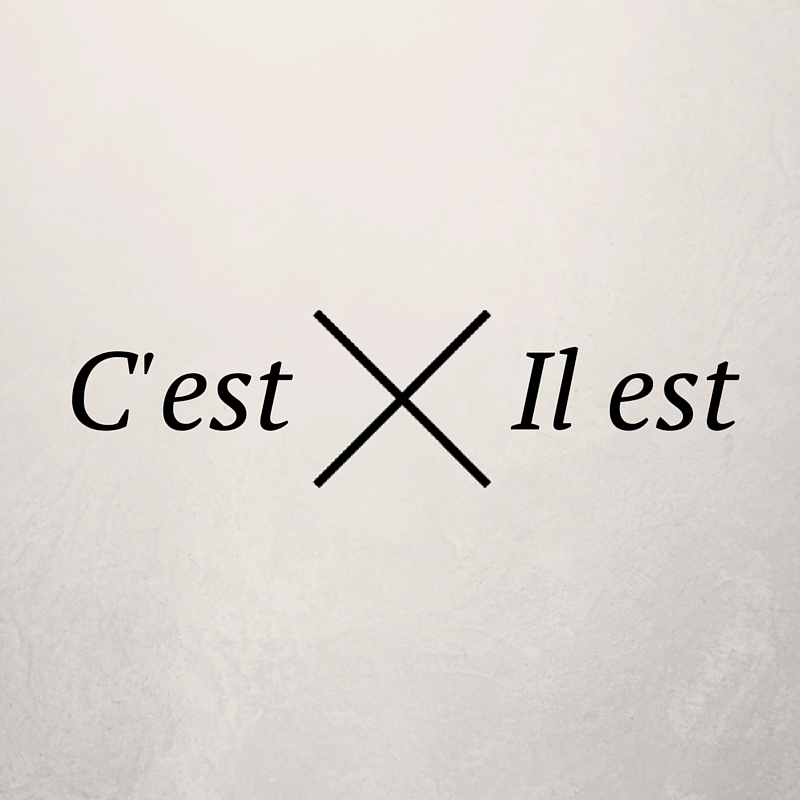
When to use « C’est » vs « il est » (or « elle est ») ?
Angela is still in high school but she’s a promising student of French (Angela wrote me several long emails in a very good French!). She told me she was confused about when to use “c’est” vs “il est / elle est”.
Indeed, this is a typical struggle among French students – thanks a lot Angela for your question and here are my explanations for you all to enjoy!
« C’est » vs « il est » / « elle est »
I’ve decided to list the main differences between “c’est” vs “il est / elle est” in a table so that the contrast between the structures stands out more / is clearer:
| Cest (plural: "ce sont") | Il est / Elle est (plural: "ils sont" / "elles sont") |
| General use: Ce doesnt refer to something/someone specific and can be translated as that: C'est dangereux pour la santé (that is/its dangerous for the health) C'est gentil à vous de me téléphoner (that is/ its nice of you to phone me) C'est la vie! (Thats life!) | When referring to someone / something specific (even if its not a living thing). La table est en bois. -> Elle est en bois. (The table is made of wood à It/She is made of wood.) Le téléphone sonne. -> Il sonne. (The phone is ringing. It/He is ringing.) Mon chien sappelle Rocky. -> il s'appelle Rocky. (My dogs called Rocky. -> Hes called Rocky.) |
| To say the date: Aujourd'hui, c'est le 15 décembre. (Today, its December 15th) | To say the time : Il est (+ heure) Il est trois heures. (its 3 o'clock) |
| With an article/determiner + noun C'est un professeur de français. (Its a French teacher.) C'est mon chien. (Its my dog.) C'est un catholique. (Hes a catholic.) Brigitte Bardot : C'est une Française. (Brigitte Bardot: she's a Frenchwoman.) | With an adjective (can be nationality, occupation used as an adjective, etc) Il/Elle est professeur de français. (He's a French teacher) Il est catholique. (Hes catholic.) Brigitte Bardot : elle est française. (Brigitte Bardot : she's French.) |
| With a proper noun (i.e the name of a person/city/country, etc., starting with a capital letter) C'est Paris. (Its Paris) | |
| With a stress pronoun: moi/toi/lui/elle/nous/vous/ils/elles Cest moi ! (its me !) |
Reminder : Be careful with the structures ! Don’t mix:
- C’est + article/determiner + noun
Ex : C’est un professeur. - Il est un/ Elle est un(e) àIl / Elle est + adjective / occupation (without any article/determiner)
Ex : il est un professeur àil est professeur.
Got it? Test yourself with this quick practice exercise I designed for you!
Get Worksheet